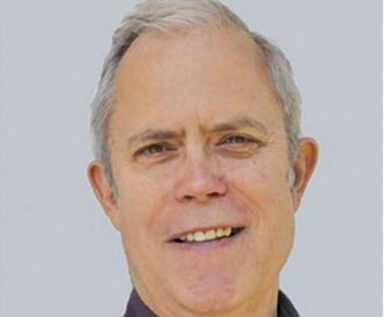The Road to Remission
Tom Robinson refused to passively accept his diagnosis of debilitating Crohn’s disease and instead embarked on a journey that not only restored his health but launched a new career.
- By Trudie Mitschang

FIFTEEN YEARS AGO, Tom Robinson received a diagnosis that would alter the course of his life. After enduring three years of troubling symptoms that included rashes, rectal bleeding and abdominal pain, Tom was finally diagnosed with Crohn’s disease. In hindsight, Tom says his real challenge began when he started searching for a gastroenterologist. “Initially, I saw many doctors who were not very empathetic — I wanted a doctor who saw me as a human being and not just an illness to treat,” he says. “I also wanted to try alternative, as well as standard, treatments; I wanted a doctor who was OK with that.”
Tom’s search for the right doctor led to a creative and targeted campaign; the software engineer wrote letters to every gastroenterologist within a 25-mile radius of his home, explaining his prognosis, his goals and the attributes he was (and was not) seeking in a physician. He got two responses; one became his doctor.
Treating Crohn’s Disease
Crohn’s disease is a chronic inflammatory condition of the gastrointestinal tract. Named after Dr. Burrill B. Crohn, who first described the disease in 1932 along with colleagues Dr. Leon Ginzburg and Dr. Gordon D. Oppenheimer, Crohn’s disease belongs to a group of conditions known as inflammatory bowel disease (IBD).
Crohn’s disease may affect as many as 700,000 Americans, and its cause is not well understood. Recent research suggests hereditary, genetics and/or environmental factors contribute to the development of Crohn’s disease. Depending on the severity of the symptoms, it may be treated with a variety of medications, including aminosalicylates, antibiotics, corticosteroids and immunomodulator medicines.
“When I needed it, prednisone was effective in greatly reducing inflammation. But the side effects were very unpleasant, so I got off of it as soon as possible,” Tom says. He was also prescribed sulfasalazine, a combination of salicylate and a sulfa antibiotic, resulting in fatigue, sleeplessness and hay-feverlike symptoms. Looking back, Tom says the most helpful treatment prescribed was Remicade (infliximab). Administered by IV, Remicade is often recommended for Crohn’s when other medications have failed. “Most people need Remicade every six to eight weeks; I went into remission after the first treatment, had a second treatment two months later for good measure, and then went off all drugs for over four years,” Tom says.
Exploring Alternative Therapies
For some patients, a combination of traditional and alternative treatments help alleviate symptoms of Crohn’s disease. Seeking treatment options, Tom read Jini Patel Thompson’s book Listen to Your Gut and made several dietary adjustments, including eating an easily digestible protein powder instead of food, drinking aloe vera juice and taking several probiotic capsules daily. Over time, he saw improvements. He also incorporated meditation into his life and, believing toxic metal poisoning from old fillings was one of the factors contributing to his symptoms, Tom also embarked on a whole-body detoxification process. “I feel strongly, but can’t prove, that the reason Remicade was so helpful was because I had all 13 of my mercury amalgam fillings removed, and then spent well over a year getting treatments to remove mercury from my organs prior to my infusions,” he says.
Making a Fresh Start
As is often the case, Tom’s first bout with Crohn’s disease was not his last, although symptoms were milder the second time around. Today, Tom is once again in remission and has opened himself up to new possibilities — including a new career. “My job as a software engineer and manager had ceased to be satisfying, so I became a life coach for people with chronic illness; I’ve been doing that ever since. Being able to make a big difference in my clients’ lives has been tremendously satisfying and fulfilling.”
Tom says he has taken full responsibility for his health now, and while he benefited greatly from modern medicine, there were many times when prescribed treatments made him feel worse. “The many horrible symptoms I had during the three years my Crohn’s disease was at its worst taught me that good health was not something I could take for granted. And I don’t. I am very grateful for it.”
References